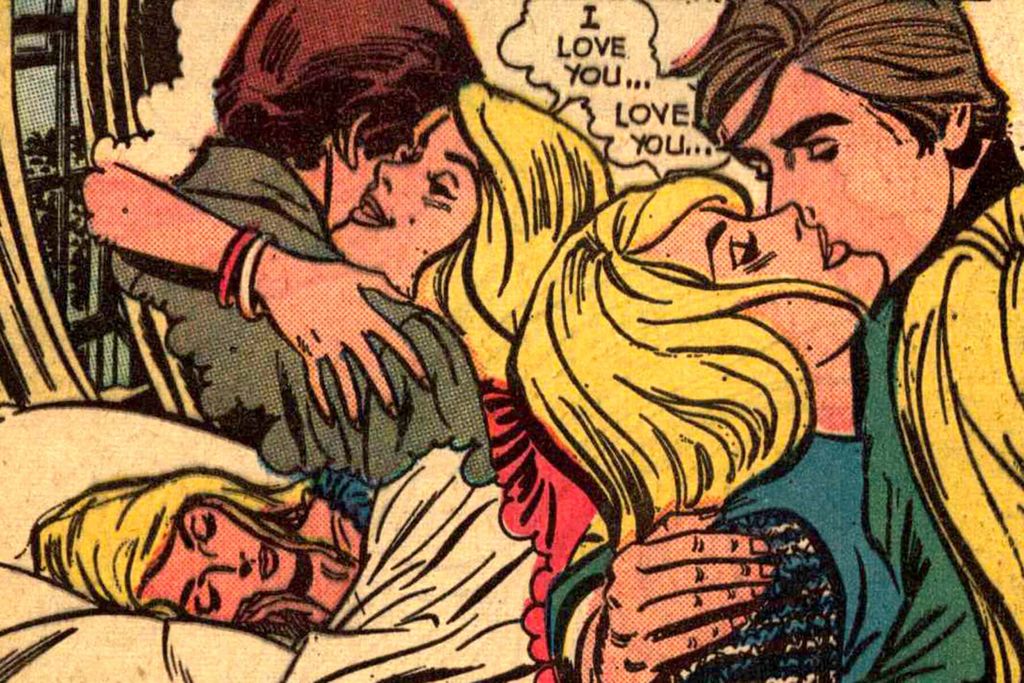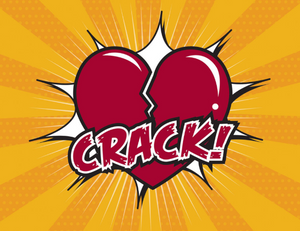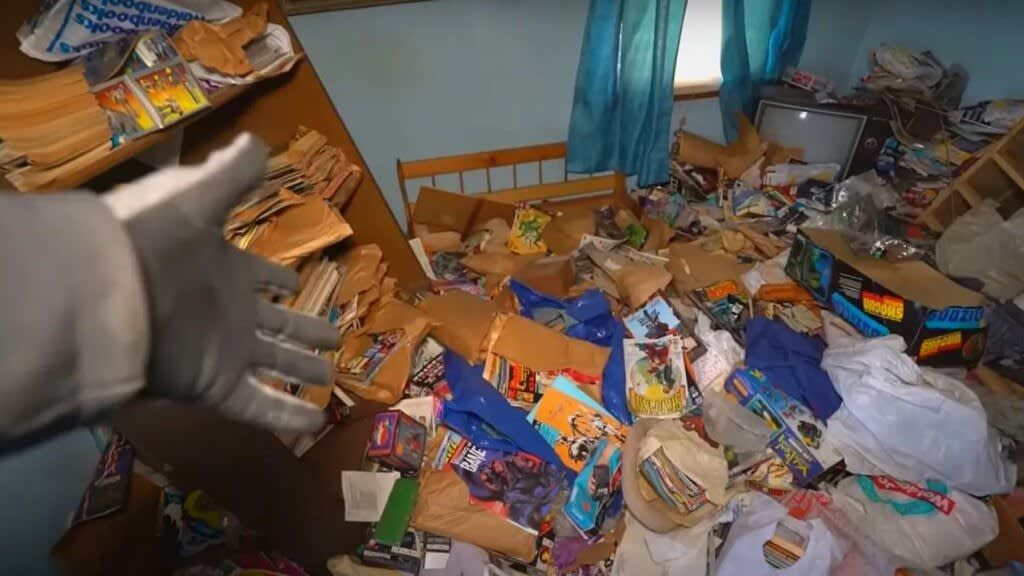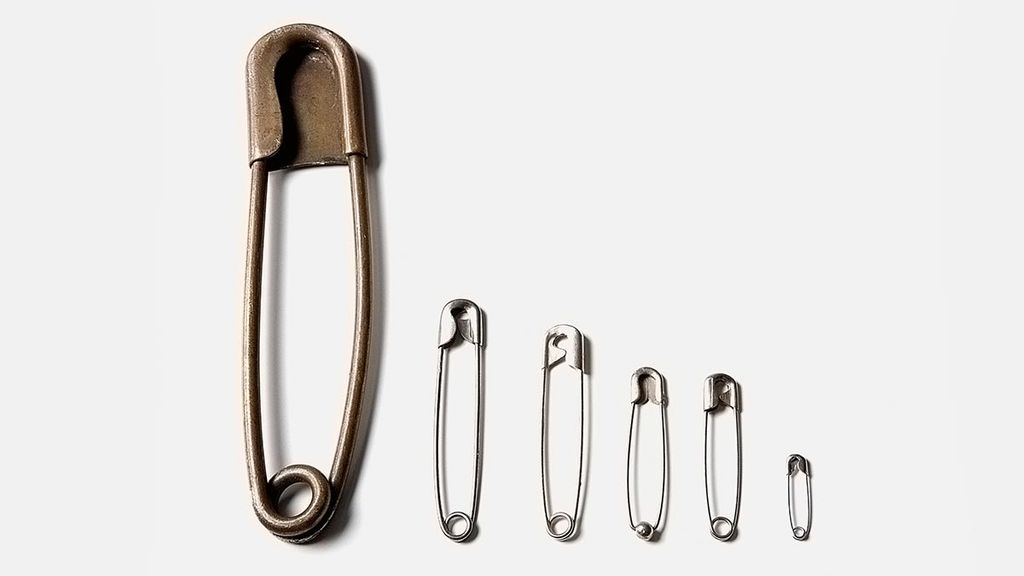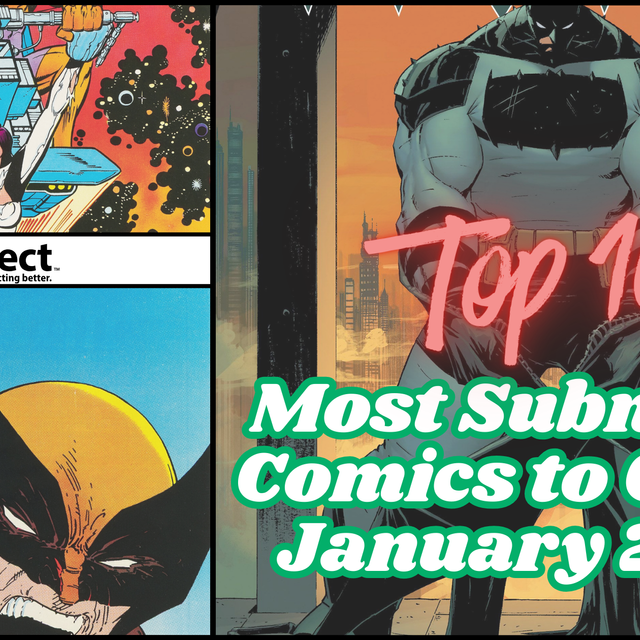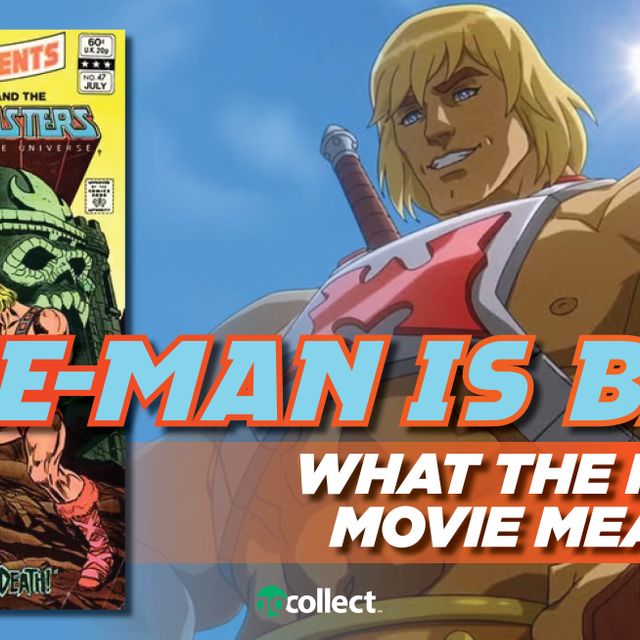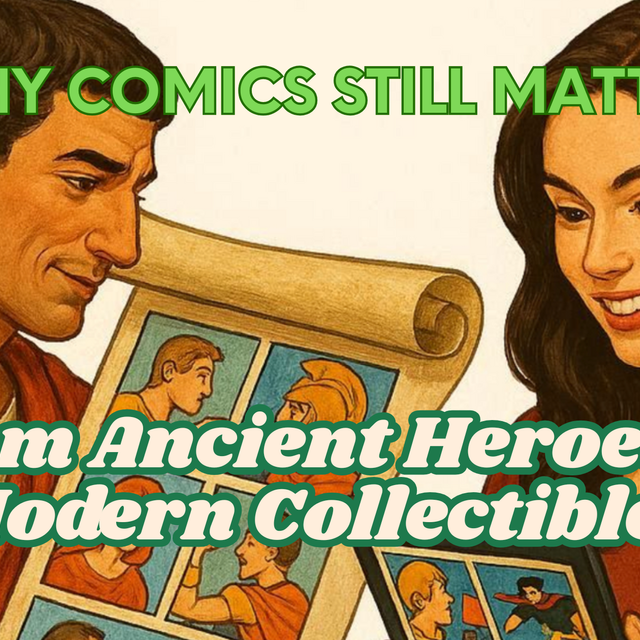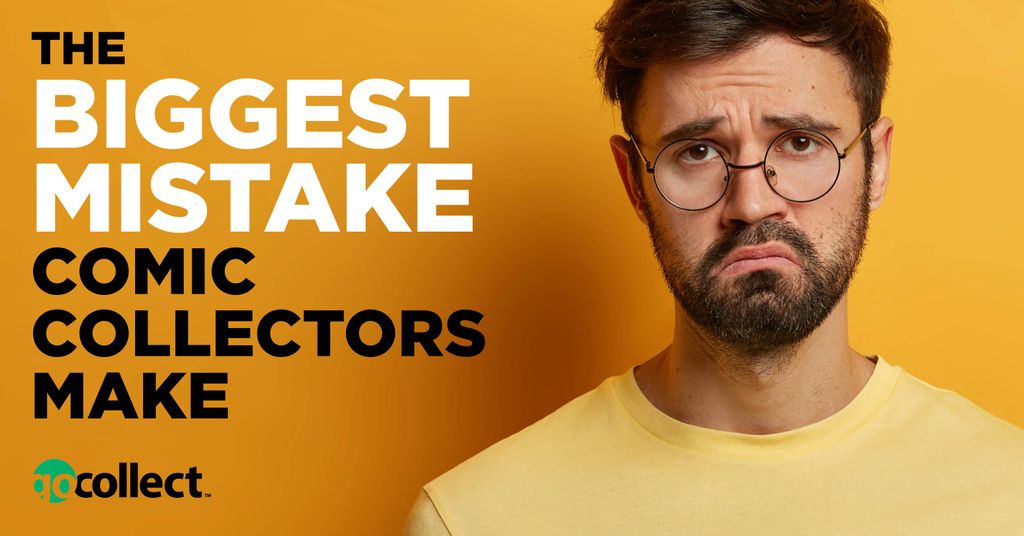
Admitting mistakes is the first step to correcting them. This article is about a mistake most collectors reading this article make when it comes to their collections. One of the greatest sayings in the hobby is 'buy what you like'. Beginners are told all the time that if they buy what they like they cannot go wrong. It is also the motto many experienced collectors use as their guide to all transactions.
The problem is that advice is not always good to follow. This type of thinking will ultimately lead the believer into so many potential pitfalls if one is not careful. Here are but a few ways that this type of thinking is problematic.
Different Degrees of Love
50 Shades of Love
Many fans love the NFL. Each of these fans has a few teams that are more beloved than others. These individuals will plan their day around the team's game so that they never miss a play. They will miss other games but not their favorite teams.
Comic collectors view items in much the same way. Collectors have many targets but all one has to do is talk to them and their true passion is revealed.
Signs of Love
Collectors demonstrate this love through how they display their collections. Wall-mounted CGC displays are commonly used by individuals. Other ways items are displayed demonstrate a hierarchy in the collection.
This may be the use of long boxes on a shelf versus a stack of boxes piled one on top of each other. The question then is how important are those books that the passion may not be as strong.
Hierarchy of Love
In life, people have different levels of love. One may love animals and yet they may love a particular type of animal more than others. Even in families, a parent may love all their children, but there may exist a special bond between a few that makes that relationship that much more special.
Comic book fans experience the same type of feelings with their books. A copy of X-Men #28 may be loved because it has the first appearance of Banshee, but X-Men #1 will be adored and treasured because of the book's significance. The problem is many comic book collectors never truly acknowledge this love stratification.
How to Avoid this Problem
"Buy what you love" can spiral out of control because there is much to love in the hobby. Love is such a generic term that is poorly defined. Buying what you love could make targeting specific books problematic. Unless the collector is independently wealthy, certain books will be out of the reach of most collectors forever.
Instead, collectors should target the books that they drool over. Books that are very expensive, iconic, or hold a special significance to the collector. The reason is these are the books that will rise in value greatly. Hit your collections bullseye and leave the easier targets for later. The cheaper books will always be there later to purchase, but if a collector truly has a prized book, get it when one can.
I Love Sesame Street ( but in the 70s)
Things Change
Many people get married because they have found true love. Years later, that love has turned into hate or ambivalence. Tastes change over time. Collectors may have settled for lesser books because of financial constraints, but that may not be an issue anymore.
This new economic freedom will expose the collector to new opportunities that were once out of reach. Collectors find new targets for their love. Others will have books that they did not know existed spark new interest. Love is not always permanent.
I Want Out
People regularly get divorced when they realize the spark is gone. Collectors are not as lucky. Rather than get separated from those items, they keep them. Maintaining these types of items in a collection only diverts essential resources that could best be spent elsewhere.
The problem is that collectors view this as against the collector's code. Collections are meant to be united. Selling items is what speculators and investors do with books. They are thus kept as prisoners; not valued enough to be truly loved but appreciated enough to be locked away.
Blast from the Past
Years ago, a prosecutor came to liquidate part of his collection. He had moved on from those books because he realized they did not bring him the joy of ownership that new targets were bringing him. He was not worried about how much he would make from the sale, but rather that it would provide him the funds to accumulate new books.
The other benefit was that these books would move on to new collectors who would treasure them as he once did. This influx of new comics thus spurred a new generation of comic book fans while letting the previous owner target new books. A win-win scenario for all.
Leading with the Heart
What Were They Thinking?
Buying what you love is void of thinking. Collectors lead with their hearts and buy to fill that need. As a result, any price that a collector pays is justified because they are not into the hobby for the financial aspect of the hobby. The added item will complete years of pursuing that unique item.
That goal requires the buyer to bid without logically thinking of the financial component of the transaction. That is one reason that collectors rarely talk prices of their acquisitions, only that they own them.
Free Pass
The motto has become a free pass excuse for collectors who go off the rails when it comes to bidding. Many times the sales data will show an abnormality where bidding far exceeded the value of the item. This can be a sign of FOMO. Collectors are not immune from FOMO.
FOMO in collectors is much more evident when two collectors bid on an item that both require for their collection. Many times bidding far exceeds the FMV of the object. What is worst is that sometimes the price also exceeds the BUY IT NOW option for an eBay-listed item of like or better items. Bidders get caught up in their emotions and lose all their senses. They also lose their cents and dollars.
Stay Cool
Never let them see you sweat. Collectors must realize that comic books are rarely one-of-a-kind items. If you miss one, there will be another coming up for sale in the future. Be smart. Use the sales data and also the items up for sale. GoCollect makes finding that data easy. Bidding smart allows one to save funds to be used for later acquisitions. There is no excuse to overpay for an item or make a purchase and then try to justify the mistake by saying it is for the collection. That only compounds the problem.
A Monument to Buying What You Love
Your Cup Runneth Over
Most comic book collectors have a huge volume of books in their possession. Over the years, these collections rarely resemble the homes seen on hoarding shows. Hoarders also view their mass of items as collections. They can reveal the time and location of their purchase as well as the item's significance.
Where hoarders deviate from collectors is that collectors are much more organized than hoarders. Collectors also want to display their items.
Losing Track of It
Collectors sometimes have times when they do not follow their own code. They buy what they love and start to lose control of their collections. Long boxes full of comics that are not inventoried soon can become the norm rather than the exception. The size of the collection would prevent the collector from saying he/she is not approaching hoarder status.
The problem is again that collectors would view selling some items as a contradiction of buying what they love. These individuals view selling items as just wrong. They much rather keep purchasing books and placing them into boxes that they will one day hope to organize. Sadly, this is what many hoarders believe.
Not Downsizing
Many collectors experience a time when they realize they are losing the emotions that came with collecting. That does not mean they do not want to participate. Instead, these people realize it is better if they rightsize their collections. More specific targets are placed on items of the collection. The collection may be smaller, but each item is now more loved because of the time one can spend organizing and researching it.
A collector should never be afraid of adjusting their collection to maximize the joy they obtain from it. Those items that are determined to not fit in a collection can either be traded or sold to cut away the fat of the collection. The remaining pieces can now be organized and appreciated more than ever was possible. This then can be a truly well-thought-out collection.
Conclusion
Not an Excuse
Buying what you love is not a saying that collectors should base their experiences and dealings. It is an abstract saying that will ultimately cost the collector time and money. The saying only serves as an excuse for why something went wrong. Rather than thinking, the collector only has to follow the whims of their hearts to accumulate their collections. All bad decisions are thus justified.
Treat Them Right
Instead, collectors should be more involved with their collections intellectually. Knowledge comes through hard work. The more a collector spends on their collection, the more that the items will mean to them. That does not mean financially.
Expenditure of time is more valuable than money. One can always make more money, but no matter how much money you have, you cannot buy more time. Collectors can read, sort, display, and research their books so that they are not just items placed in boxes to be forgotten. How can one love something if it is not appreciated?
Bigger is not Better
Ultimately, the truly gifted collector will realize that size does not matter. A collection of Action Comics #1 and Batman #1 will be a much more desirable collection than a collection that looks like it was pieced together by a fan who was afraid to complete their collection.
Collectors realize that their greatest fear in collecting is that once their collection is completed, what is next? Collectors thus create a collection with an inherent belief that it will never truly be completed. Additions will be included to form new areas to target even if they were never truly valued in the past. A collection becomes an accumulation of items with no common theme. Avoiding this is the key to maintaining a true collection.
Take Action Now
Rightsizing is the method of eliminating items to tune up the collection so that it can be managed and appreciated. Once this is done the collection can truly be loved because all items will be important to the collector. It is hard to believe that a comic book looked at once and then placed in a box that is stacked with dozens of others never to be seen again can be truly loved by a collector.
There is nothing wrong with admitting the collector's pursuits needs have changed. The only thing wrong is that a collector's bad habits continue in the blind belief that 'buying what you love' never can change. Those reading this article should look in the mirror and ask...are you GoCollecting or just GoAccumulating.
“Of all books printed, probably not more than half are ever read. Many are embalmed in public libraries; many go into private quarters to fill spaces; many are glanced at and put away...scarcely opened until the fire needs kindling. The most ardent book lovers are not always the greatest readers; indeed, the rabid bibliomaniac seldom reads at all. To him, books are as ducats to the miser, something to be hoarded and not employed... So pleasant it is to buy books; so tiresome to utilize them.”
?


